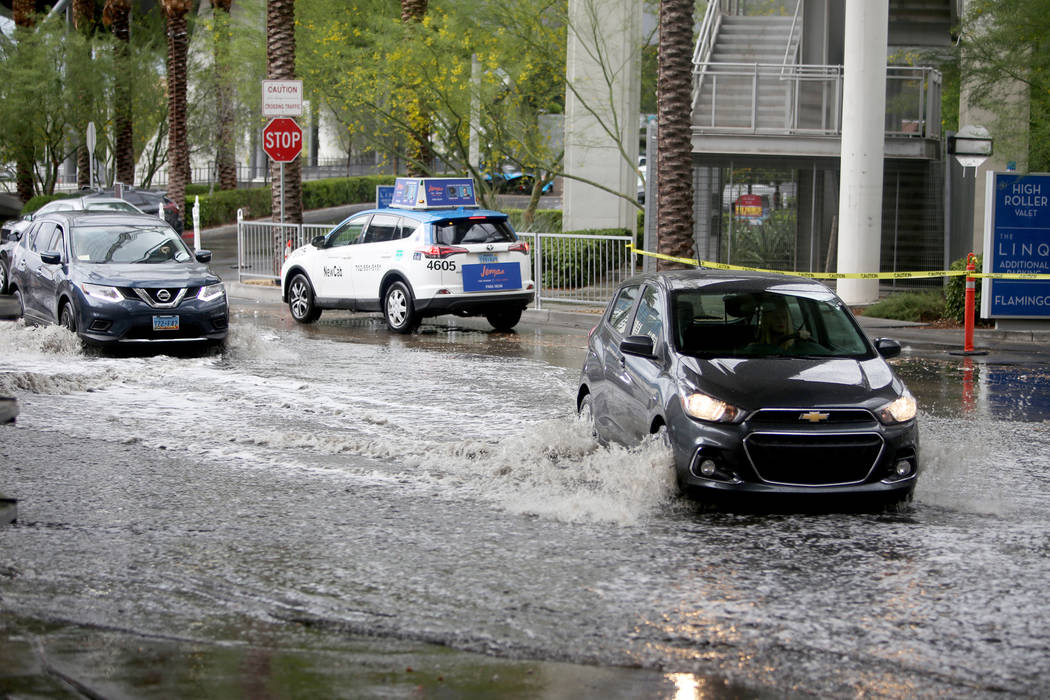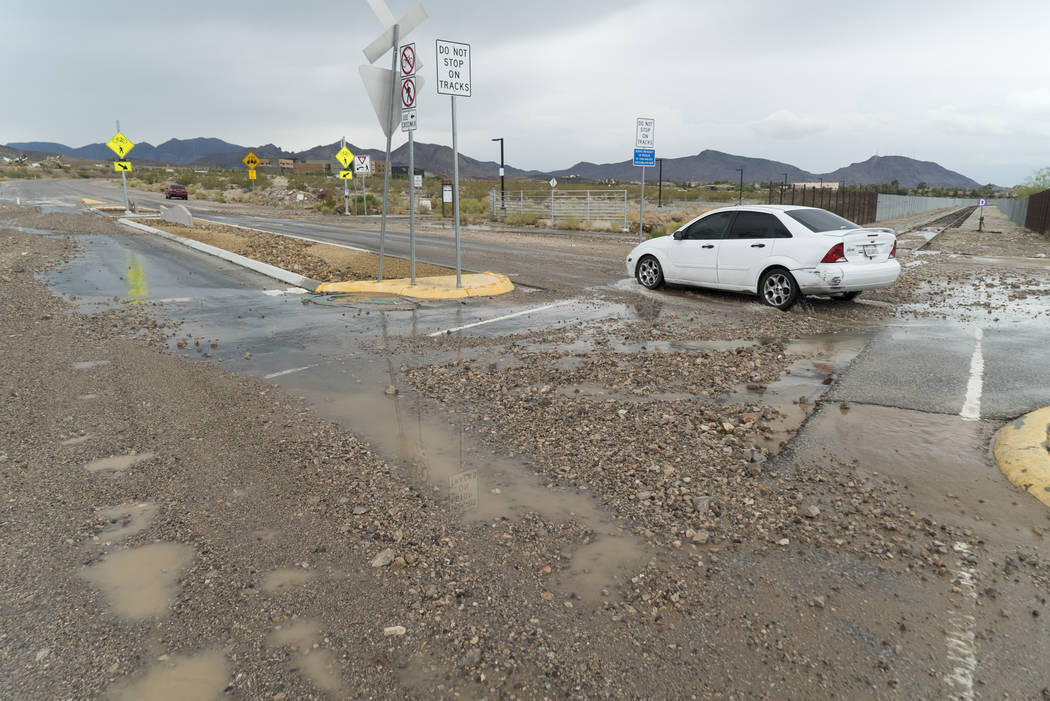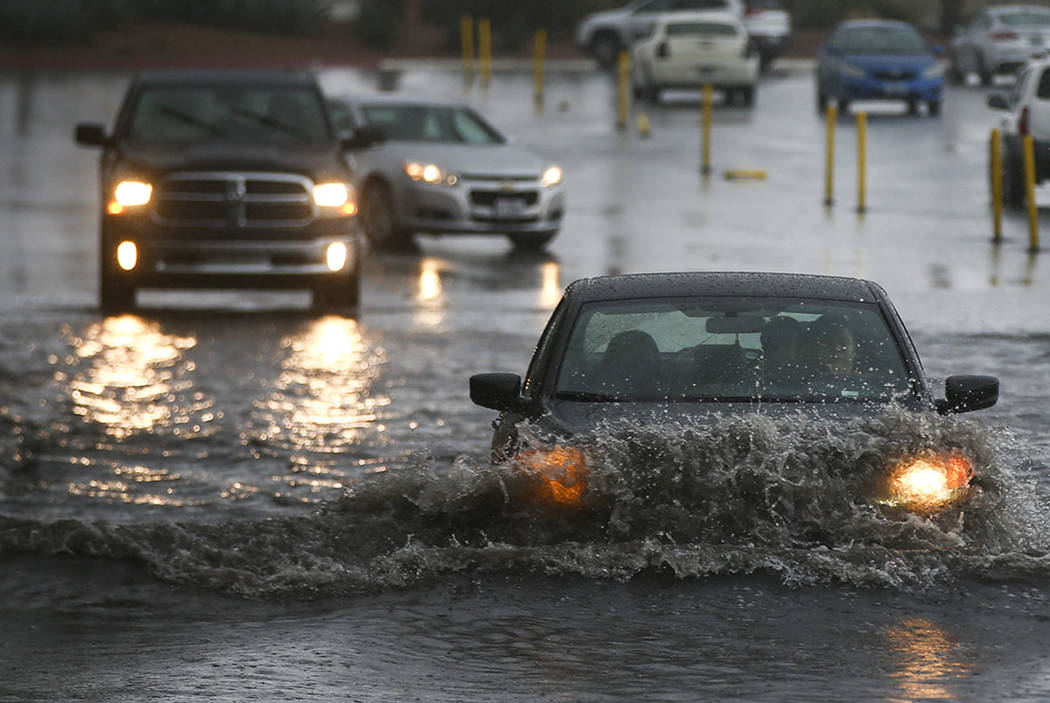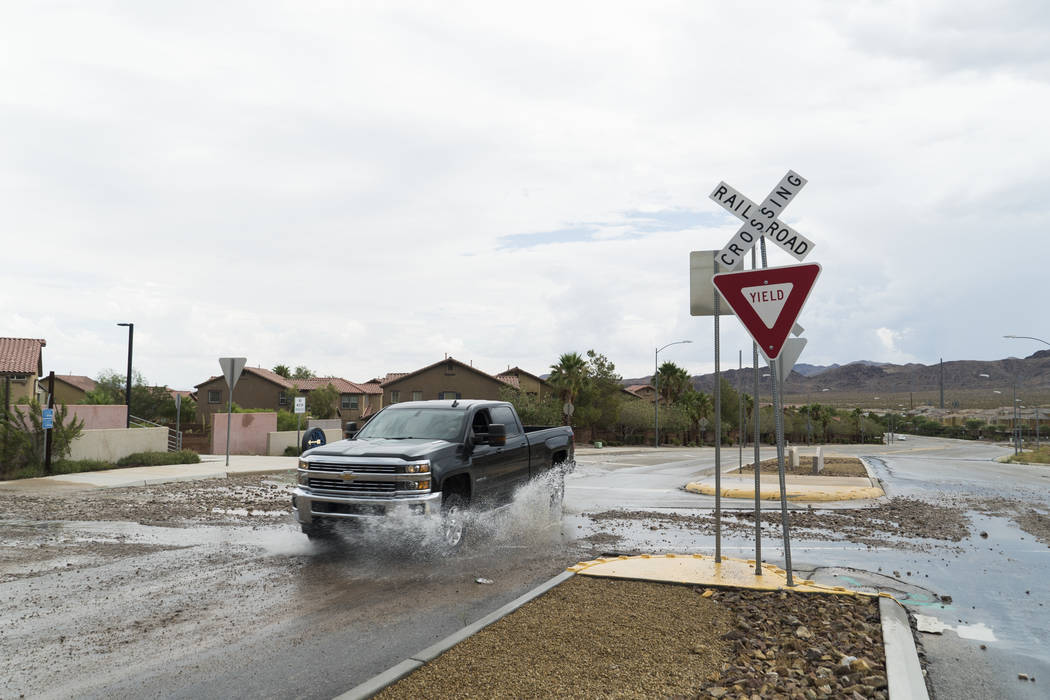Here’s a guide for driving in the rain in Las Vegas
It’s 4:55 p.m. Friday. You’ll soon scurry out of your downtown work cubicle, sprint to your vehicle and drive to your comfy abode elsewhere in the valley in anticipation of a fun evening with family or friends.
However, a rare thunderstorm has just hit the Las Vegas Valley. The raindrops are starting to stream down your windshield.
As you enter our congested roadways at the worst possible time — several hundred thousand others are ready to put the pedal to the metal.
You’ve heard it before — slow (the heck) down!
It’s a well-known fact that law enforcement has its busiest times as valley motorists try to navigate in the rain. The Las Vegas crash rate can double or triple during wet weather. Much of that is because motorists were simply driving too fast for conditions.
Nationally, 1.2 million crashes a year are related to wet conditions, said Sergio Avila, Nevada spokesman for AAA.
Speeding (or even adhering to the posted limit), older tires, beating wipers, worn brakes, oil on the road and distractions as you ponder the evening ahead can all be critical factors leading to disaster.
Nevada Highway Patrol Trooper Travis Smaka offers his top 5 tips for navigating the rain and roads safely:
1. No excessive speed
Gradually slow down so you don’t lose tire traction. Never slam on the brakes unless absolutely needed. Be sure to slow down in advance for freeway exits. “We get a lot of people flying off ramps,” Smaka says.
2. Safe following distance
“Time is your friend,” Smaka says. “Double the 3 seconds at 60 mph in good weather rule. Try to double your following distance if you can. It’s always the one driver not adhering to the safe following distance rule that comes sliding into you.”
3. Never enter standing water
Not only can it destroy your engine, but it can leave you stranded and facing costly repairs. And even as slow has 30 mph, your vehicle can completely hydroplane and lose all traction with the road.
4. Wear your seat belt
“There’s nothing more anybody can ever do to avoid major damage or death,” Smaka said. “It takes 7,800 pounds of force to keep you in your seat in a high-speed collision.” It is cliche, but your seat belt and the one second it takes to fasten it is essential.
5. If an accident occurs in traffic, move to the shoulder
If you can drive your vehicle, move it out of the travel lane to the shoulder. “We do get a lot of residual crashes,” Smaka said.
Other advice
Headlights: According to AAA, in Nevada, headlights are only required to be on 1/2 hour after sunset to 1/2 hour before sunrise, and when visibility is less than 1000 feet. However, it is, of course, helpful to turn your headlights on in inclement weather.
First 10 minutes: When it rains heavy or even light rainfall after a prolonged period of dry conditions, oil on the road mixes with rain, making conditions extremely slippery.
“The first 10 minutes of a storm is when it is the slickest,” Avila said. “That is the time to be extra cautious.”
If caught in a skid: “If you find yourself skidding, steer in the direction you want your vehicle to go and avoid hitting the brakes because that will only make it worse,” Avila advised.
Alternate route: Roads can be closed, especially for a bad crash or water pooling or even running over the surface.
“It’s always good to know more than one way home,” Smaka said. “Many people tell us ‘this is the only way I know to get home.’ “
Allow extra time: “Expect delays, slow down and don’t get frustrated because it is going to take longer to get from point A to point B,” said Andrew Bennett, spokesman for the Nevada Office of Traffic Safety.
Pocketbook factor: How does $200 deducted from your bank account sound?
“Many violations for motorists involved in rain-related crashes come down to not being careful,” Smaka said. “Failure to use due care, too fast for conditions.”
The fine for such violations varies by Nevada jurisdiction, but $200 is a ballpark cost, Smaka said.
Contact Marvin Clemons at mclemons@reviewjournal.com.




















